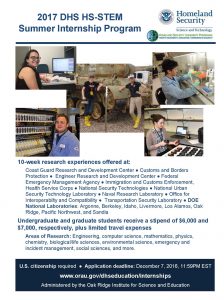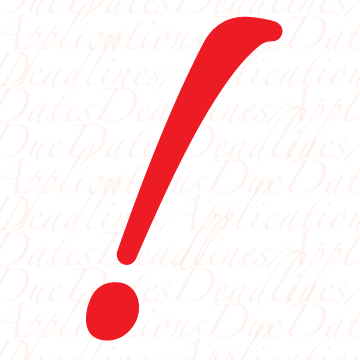Calendar
To submit your event to the College of Science events calendar, use the “post your event” button. Student groups, other Mason units, and external groups with activities related to the College of Science are welcome to submit events for the calendar. If you have any questions or need to edit or delete your event, please email the COS webmaster at cosweb@gmu.edu.
Did you know that you can subscribe to this calendar? If you’d like to be notified of new events and even have them added to your own Outlook or Google calendar automatically, use the “Subscribe” button below the calendar.
COMPUTATIONAL SOCIAL SCIENCE FRIDAY SEMINAR
Friday, December 2, 3:00-4:30 p.m.
Center for Social Complexity Suite
Research Hall, 3rd Floor
Talha Oz, CSS PhD Student
Department of Computational and Data Sciences
George Mason University
Attribution of Responsibility and Blame Regarding a Man-made Disaster: #FlintWaterCrisis
Attribution of responsibility and blame are important topics in political science especially as individuals tend to think of political issues in terms of questions of responsibility, and as blame carries far more weight in voting behavior than that of credit. However, surprisingly, there is a paucity of studies on the attribution of responsibility and blame in the field of disaster research.
The Flint water crisis is a story of government failure at all levels. By studying microblog posts about it, we understand how citizens assign responsibility and blame regarding such a man-made disaster online. We form hypotheses based on social scientific theories in disaster research and then operationalize them on unobtrusive, observational social media data. In particular, we investigate the following phenomena: the source for blame; the partisan predisposition; the concerned geographies; and the contagion of complaining.
This paper adds to the sociology of disasters research by exploiting a new, rarely used data source (the social web), and by employing new computational methods (such as sentiment analysis and retrospective cohort study design) on this new form of data. In this regard, this work should be seen as the first step toward drawing more challenging inferences on the sociology of disasters from “big social data”.
Yang Zhou, CSS PhD Student
Department of Computational and Data Sciences
George Mason University
The Origin of Agriculture in the Peiligang Culture: An Agent-based Modeling Approach
The emergence of agriculture played an important role in human history as it allowed people to move from a nomadic to a sedentary life. This not only provided abundant food, but also sufficient numbers of non-cultivating specialists, which are necessary conditions for the rise of civilization. However, questions about how and why agriculture originated have remained controversial. This paper explores the origin hypotheses of agriculture, using the canonical theory of social complexity as a framework to the transition from hunter-gatherer to agricultural societies in the region of the Peiligang culture in China based on existing literature, and develops an agent-based model to simulate the transition process. The model assumes that the combination of population growth and gaining knowledge on plants drove the transition to agriculture. Results show that based on the basic hypotheses and assumptions, the model is able to generate the key phases that are identical with the existing literatures.
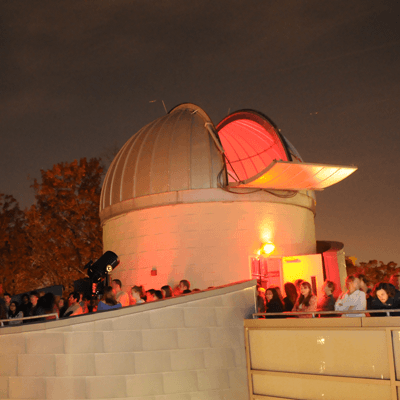
Open to Mason students, alumni, faculty and staff members who wish to attend.
Check back in November for the Alumni Events RSVP Button.
Meeting may be moved to EXPL 3301 if sufficient interest is expressed.
Can’t travel to Fairfax? Let us know in the comments when you register and we’ll send you a conference line number!
Tentative agenda includes:
- Signature Events
- “Science of” Alumni Weekend 2017
- 2017 Spring Convocation/Reception
- Chapter Engagement
- COS Alumni Strategic Retreat 2017
- Happy Hours
- Committees
- Student Meet and Greet Events
- 2017 Health & Science Career Fair Participation
- Science Slam Competition
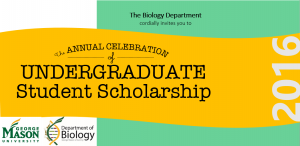
Meet and greet undergraduate students, who have worked with Biology faculty, as they present their 2016 research projects.
Light Appetizers and refreshments will be served.
This event is sponsored by the Department of Biology.
Join us for holiday cheer! Stop by our office for light refreshments and get a free COS shirt (while supplies last).
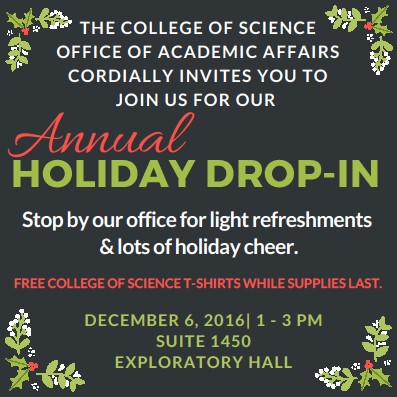
The U.S. Department of Homeland Security (DHS) is seeking undergraduate and graduate STEM majors for its 2017 HS-STEM summer internship program.
The 10-week program provides students with quality research experiences at federal research facilities across the country, including the Naval Research Laboratory (NRL), the Coast Guard Research and Development Center, and FEMA. Students also have the opportunity to network with DHS professionals.
Stipend: Undergraduate students receive a $6,000 stipend, plus travel expenses. Graduate students receive a $7,000 stipend, plus travel expenses.
Areas of Research: Engineering, computer science, mathematics, physics, chemistry, biological / life sciences, environmental science, emergency and incident management, social sciences, and more.
Requirements: U.S. citizenship, 3.3 GPA (cumulative)
Application Deadline: December 7, 2016, 11:59PM EST
How to Apply: Applications and supporting materials must be submitted at https://www.zintellect.com/Posting/Details/2595
Program Information: Detailed information about the internships can be found at http://www.orau.gov/dhseducation/internships/
For questions, please email dhsed@orau.org.
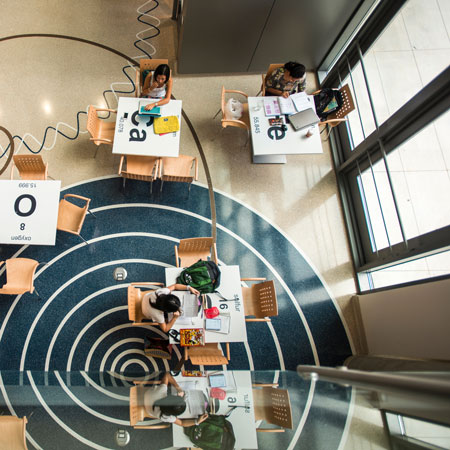
People read differently online: they scan. They’re trying to find information quickly. Writing with this goal in mind makes a website more appealing. Get practical techniques for writing for the web, including tips on front-loading content and avoiding jargon, as we develop a more engaging Mason web presence. Led by the University Office of Communications and Marketing, and the university partner for the web overhaul.
There is no limit on how many people can attend, so tell everyone you know who might be interested. However, we would like an RSVP, so we can get a rough idea of how many will be there and if we’ll need to offer additional sessions.
This event will be recorded for those who are unable to attend.
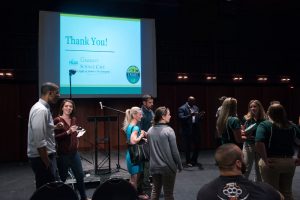 Tonight’s Topic: Interfacing Brains to Electronics
Tonight’s Topic: Interfacing Brains to Electronics
Speaker: Dr. Nathalia Peixoto
Timeline:
6:00PM: Doors open, food and beverages available
7:00PM-7:30PM: Scientific Discussion
7:30PM-7:45PM: Q&A
7:45PM-8:30PM: Meet the Scientist and Networking Reception
Hear about the latest findings surrounding hot topics in science and medicine that affect our everyday lives and the decisions that we make! Bring your friends and family for a free, casual, interactive science discussion. Learn from the experts and speak with them personally.
About the Topic
 New breakthroughs in computer-brain interfaces can revolutionize the way that disabled individuals can go about their everyday lives. Our ability to see, hear, move, and think is controlled by neurons in our body that communicate by transmitting electrical signals. Scientists are using the electrical properties of nerves, in conjunction with the power of modern computers, to develop computer-brain interface technologies. While this may sound like science fiction, our neural engineering laboratory is electrically stimulating and recording activity from neurons, developing retinal implants for blind people, and leveraging augmented reality to help people with disabilities.
New breakthroughs in computer-brain interfaces can revolutionize the way that disabled individuals can go about their everyday lives. Our ability to see, hear, move, and think is controlled by neurons in our body that communicate by transmitting electrical signals. Scientists are using the electrical properties of nerves, in conjunction with the power of modern computers, to develop computer-brain interface technologies. While this may sound like science fiction, our neural engineering laboratory is electrically stimulating and recording activity from neurons, developing retinal implants for blind people, and leveraging augmented reality to help people with disabilities.
Program Sponsors
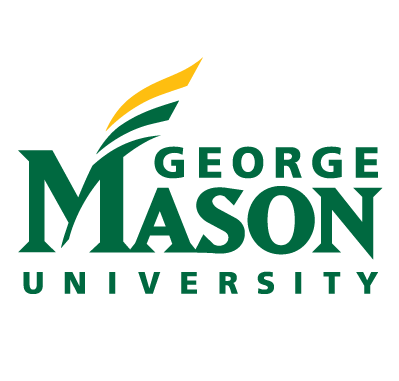
For updates or information about important university dates, please visit the University Registrar’s website: registrar.gmu.edu/calendars/spring-2017/

For updates or information about important university dates, please visit the University Registrar’s website: registrar.gmu.edu/calendars/spring-2017/


